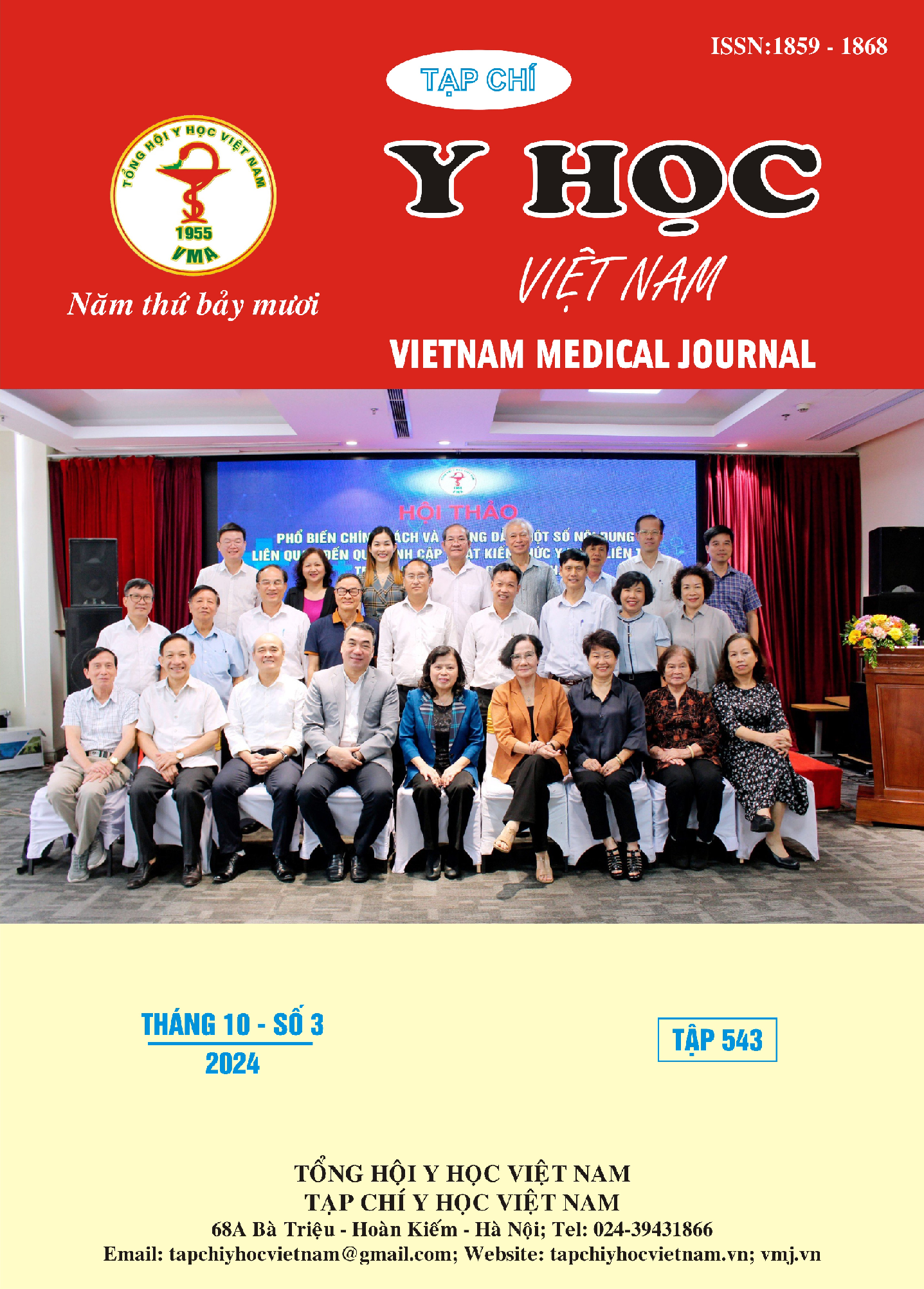INVESTIGATION OF KI-67 EXPRESSION IN PROSTATE CANCER TISSUE SAMPLES AT BINH DAN HOSPITAL
Main Article Content
Abstract
Objective: To evaluate the level of Ki-67 expression and their correlation with characteristics in prostate cancer patients. Method: Descriptive cross-sectional study. Results: From December 2018 to February 2020, 67 cases of prostate cancer underwent radical prostatectomy. The average level of Ki-67 marker expression in prostate cancer tissue after radical prostatectomy was 11.6 ± 13.8%. Moreover, 39 patients had Ki-67 expression ≤ 5% and 28 patients had > 5%. 100% of patients had prostate carcinoma. Hypertension, Gleason classification and PSA subtype were associated with Ki-67 expression (p<0.05). Conclusion: Ki-67 expression in prostate cancer tissue samples is a potential biomarker in prostate cancer prognosis.
Article Details
Keywords
Ki-67, Prostate cancer.
References
2. Berney DM, Gopalan A, Kudahetti S, et al. Ki-67 and outcome in clinically localized prostate cancer: analysis of conservatively treated prostate cancer patients from the Trans-Atlantic Prostate Group study. Br J Cancer. Mar 24 2009; 100(6):pp. 888-893. doi:10.1038/sj.bjc.6604951
3. Kammerer-Jacquet SF, Ahmad A, Møller H, et al. Ki-67 is an independent predictor of prostate cancer death in routine needle biopsy samples: proving utility for routine assessments. Mod Pathol. Sep 2019;32(9):1303-1309. doi:10.1038/s41379-019-0268-y
4. Verhoven B, Yan Y, Ritter M, et al. Ki-67 is an independent predictor of metastasis and cause-specific mortality for prostate cancer patients treated on Radiation Therapy Oncology Group (RTOG) 94-08. International journal of radiation oncology, biology, physics. Jun 1 2013;86(2):pp. 317-323. doi:10.1016/j.ijrobp.2013.01.016
5. Tretiakova MS, Wei W, Boyer HD, et al. Prognostic value of Ki67 in localized prostate carcinoma: a multi-institutional study of >1000 prostatectomies. Prostate cancer and prostatic diseases. Sep 2016;19(3):pp. 264-270. doi:10.1038/pcan.2016.12
6. Mesko S, Kupelian P, Demanes DJ, et al. Quantifying the ki-67 heterogeneity profile in prostate cancer. Prostate Cancer. 2013;2013:pp.717-780. doi:10.1155/2013/717080
7. Krisna M., Syah M.W., Lidya I. Relations between Ki-67 immunohistochemistry expression with histopathology grading and prostate-specific antigen (PSA) values in adenocarcinoma prostate. Bali Medical Journal. 2017;6(2):pp. 289-293.
8. Azizan N, Hayati F, Tizen NMS, et al Role of co-expression of estrogen receptor beta and Ki67 in prostate adenocarcinoma. Investigative and clinical urology. Jul 2018;59(4):pp. 232-237. doi:10.4111/icu.2018.59.4.232


